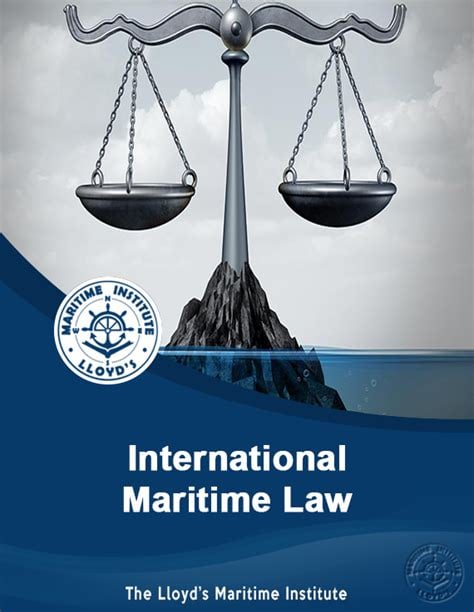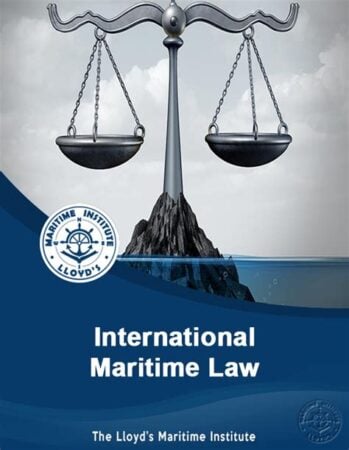
- International Law Maritime: A Guide for Navigating the Open Seas
- Introduction
- Table: Key International Law Maritime Conventions
- Conclusion
-
FAQ about International Law Maritime
- What is international maritime law?
- What are the main sources of international maritime law?
- What is the UNCLOS?
- What is the difference between territorial waters and the exclusive economic zone?
- What is the flag state?
- What are maritime crimes?
- What is the role of the International Maritime Organization?
- What is the role of the International Court of Justice in maritime disputes?
- What is the future of international maritime law?
International Law Maritime: A Guide for Navigating the Open Seas

Introduction
Ahoy there, readers! Welcome to our deep dive into the fascinating world of international law maritime. As we set sail on this legal adventure, we’ll explore the intricate rules and regulations that govern the vast expanse of the open seas. From the depths of the ocean to the heights of the crow’s nest, we’ll uncover the complexities of this specialized legal realm. So, buckle up, grab a compass, and let’s embark on this maritime expedition!
International law maritime is a dynamic and ever-evolving field that plays a crucial role in ensuring the safety, security, and sustainability of our oceans. It encompasses a wide range of topics, from maritime boundaries and navigation rights to environmental protection and marine resource utilization. As we delve into the subject, we’ll unravel the intricate web of treaties, conventions, and customs that shape this complex legal landscape.
Jurisdiction and Maritime Boundaries
Establishing jurisdiction over maritime zones is a fundamental aspect of international law maritime. Coastal states exercise sovereignty within their territorial waters, extending up to 12 nautical miles from their baseline. Beyond this limit, the Exclusive Economic Zone (EEZ) extends up to 200 nautical miles, granting states exclusive rights to explore and exploit natural resources. The continental shelf, which extends beyond the EEZ, is also subject to coastal state jurisdiction, providing rights to explore and exploit seabed resources.
Navigation and Safety at Sea
Ensuring safe and orderly navigation is paramount in international law maritime. The International Maritime Organization (IMO) plays a pivotal role in regulating shipping activities through conventions such as the Safety of Life at Sea (SOLAS) and the International Convention for the Prevention of Pollution from Ships (MARPOL). These conventions establish standards for vessel design, construction, and operation to prevent accidents, protect human lives, and safeguard the marine environment.
Environmental Protection and Sustainable Use
The oceans are a vital part of our planet’s ecosystem, and international law maritime plays a crucial role in protecting this precious resource. Conventions like the United Nations Convention on the Law of the Sea (UNCLOS) and the Convention on Biological Diversity (CBD) establish frameworks for environmental protection, marine conservation, and sustainable use of marine resources. States have an obligation to minimize pollution, protect biodiversity, and conserve marine ecosystems for future generations.
Table: Key International Law Maritime Conventions
| Convention | Purpose |
|---|---|
| United Nations Convention on the Law of the Sea (UNCLOS) | Provides a comprehensive framework for the regulation of all aspects of maritime law |
| International Convention for the Safety of Life at Sea (SOLAS) | Sets standards for ship design, construction, and operation to ensure safety of life at sea |
| International Convention for the Prevention of Pollution from Ships (MARPOL) | Regulates the discharge of pollutants from ships to protect the marine environment |
| Convention on Biological Diversity (CBD) | Promotes the conservation of biological diversity, sustainable use of biological resources, and fair and equitable sharing of benefits |
| Regional Seas Conventions | Address specific environmental issues and conservation measures in particular marine regions |
Conclusion
As we cast off and conclude our exploration of international law maritime, we hope you’ve gained a deeper understanding of the complexities of this fascinating legal field. From maritime boundaries to environmental protection, this specialized body of law plays a crucial role in ensuring the safety, security, and sustainability of our oceans.
If you’re eager to dive deeper into the maritime legal realm, we invite you to explore our other articles on specific topics of interest. Whether you’re a seasoned seafarer, a budding legal scholar, or simply curious about the world of international law, we’ve got you covered. So, hoist the sails, navigate the legal waters, and stay tuned for more maritime adventures!
FAQ about International Law Maritime
What is international maritime law?
- International maritime law is a body of international law that governs the use of the oceans and seas, including the rights and duties of ships and their crews.
What are the main sources of international maritime law?
- The main sources of international maritime law include the United Nations Convention on the Law of the Sea (UNCLOS), the International Convention for the Prevention of Pollution from Ships (MARPOL), and the International Labour Organization’s Convention on Maritime Labour.
What is the UNCLOS?
- The UNCLOS is the most important international treaty on maritime law. It establishes a legal framework for all aspects of ocean use, including navigation, fishing, environmental protection, and dispute resolution.
What is the difference between territorial waters and the exclusive economic zone?
- Territorial waters are the waters that extend from the coastline of a state to a distance of 12 nautical miles. The exclusive economic zone (EEZ) is the area that extends from the territorial waters to a distance of 200 nautical miles. The coastal state has exclusive rights to the resources in its EEZ, but other states have rights to navigation and fishing.
What is the flag state?
- The flag state is the state in which a ship is registered. The flag state has jurisdiction over the ship and its crew, regardless of where the ship is located.
What are maritime crimes?
- Maritime crimes include piracy, smuggling, drug trafficking, and human trafficking. These crimes are often transnational in nature, and they can have a significant impact on the safety and security of international shipping.
What is the role of the International Maritime Organization?
- The International Maritime Organization (IMO) is a specialized agency of the United Nations that is responsible for developing and maintaining international standards for maritime safety, environmental protection, and the prevention of marine pollution.
What is the role of the International Court of Justice in maritime disputes?
- The International Court of Justice (ICJ) is the principal judicial organ of the United Nations. It has jurisdiction to resolve maritime disputes between states, including disputes over maritime boundaries, fishing rights, and environmental protection.
What is the future of international maritime law?
- The future of international maritime law is likely to be shaped by a number of factors, including climate change, the growing use of the oceans for renewable energy development, and the increasing globalization of shipping.




